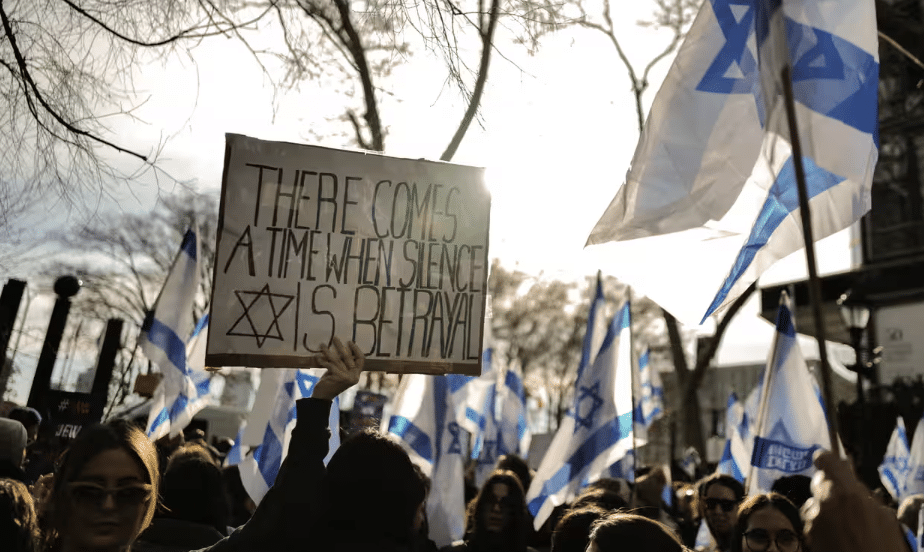During the Hamas attacks of 7 October, Israeli girls and women – ranging from young children to elderly people – were subjected to gang-rape and humiliating sexual assaults. Some of their corpses were violated. Hostages who have been released have reported on sexual violence that they and other captives endured while being held in Gaza. We, as human rights advocates in the fight against gender-based violence and antisemitism, were deeply troubled – and remain so – by the slow response of international organisations, governments and civil society to these horrific occurrences.
Some groups initially hesitated, or posted and then retracted the information, citing the need for further evidence in a situation where obtaining such documentation is inherently challenging. This reaction is in stark contrast to the global gender-based violence movement’s typical emphasis on the importance of listening to and believing survivors’ accounts.
[The Guardian Report continues]
We feel compelled to ask: why is this situation any different to when other women have faced similar violence? What accounts for the clear reticence to speak out? The only difference is the perception that these were Jewish – and were perceived by some as somehow deserving – victims. (The victims included non-Jewish women, but the vast majority were Jews.)
The silence that followed was more than just concerning; it suggests a deeper issue of antisemitism that must be acknowledged and addressed. This apparent reluctance to believe the accounts of Jewish women, a stark deviation from the global commitment to believing survivors and condemning such acts, mimics patterns of Holocaust denial, perpetuating a cycle of antisemitism by furthering the stereotype of Jews as untrustworthy. Such denial of Jewish women’s experiences is a significant anomaly and needs to be called out for what it is: a stark manifestation of deep-seated antisemitism.
The use of sexual violence as a tool of war is undeniably on the rise. Ignoring or delaying a response to credible reports of such horrific acts inadvertently validates the acts. It not only denies justice to the victims, but also emboldens the perpetrators.
[The Guardian Report continues]
And we avoid the trap that befalls much US media: the tendency, born of a desire to please all sides, to engage in false equivalence in the name of neutrality. We always strive to be fair. But sometimes that means calling out the lies of powerful people and institutions – and making clear how misinformation and demagoguery can damage democracy.
From threats to election integrity, to the spiralling climate crisis, to complex foreign conflicts, our journalists contextualise, investigate and illuminate the critical stories of our time. As a global news organisation with a robust US reporting staff, we’re able to provide a fresh, outsider perspective – one so often missing in the American media bubble.
Around the world, readers can access the Guardian’s paywall-free journalism because of our unique reader-supported model. That’s because of people like you. Our readers keep us independent, beholden to no outside influence and accessible to everyone – whether they can afford to pay for news, or not.
View this The Guardian Report from January 11th

